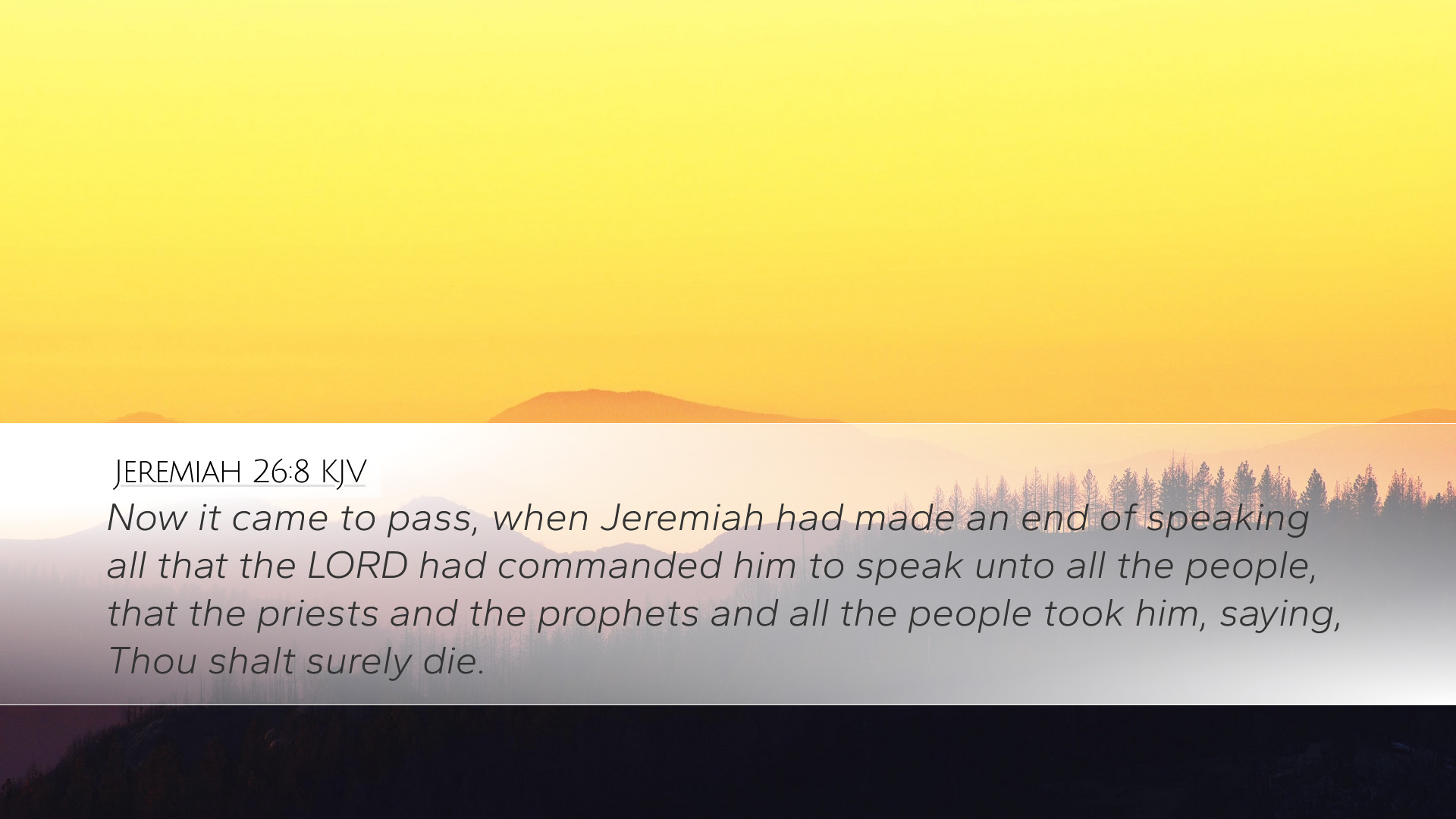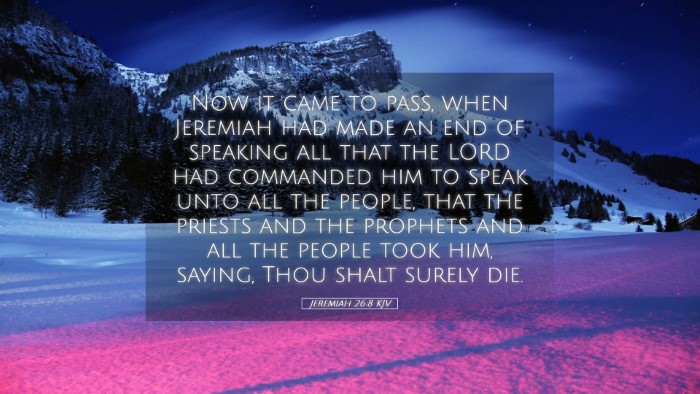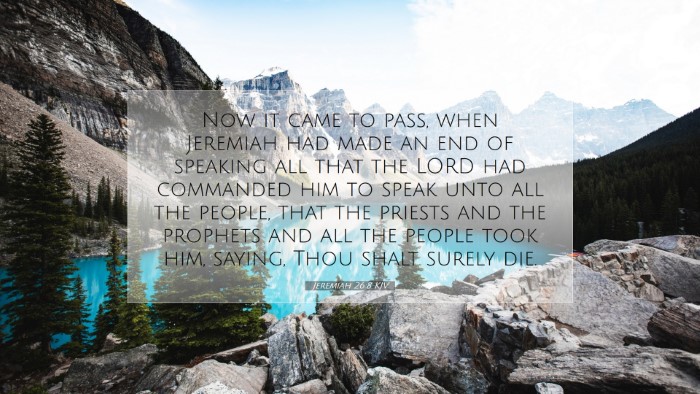Commentary on Jeremiah 26:8
Jeremiah 26:8 presents a pivotal moment in Jeremiah’s ministry, showcasing the tensions between prophetic authority and societal expectations. The verse reads:
“And it came to pass, when Jeremiah had made an end of speaking all that the Lord had commanded him to speak unto all the people, that the priests and the prophets and all the people took him, saying, Thou shalt surely die.” (Jeremiah 26:8 KJV)
Contextual Analysis
This verse occurs within a broader narrative that highlights the conflict between God's message and human rebellion. After Jeremiah faithfully delivers the Lord's warning of impending judgment, he faces immediate backlash from religious leaders and the populace.
Historical Background
- The time of Jeremiah was marked by great political and social upheaval in Judah.
- The nation was facing invasion from Babylon, and false prophets were leading the people to believe all was well.
- Jeremiah’s prophecies, warning of destruction, were unpopular and met with formidable resistance.
Insights from Commentators
Matthew Henry
Matthew Henry underscores the courage required of Jeremiah in delivering a hard message to the people who were not prepared to receive it.
- Faithfulness in Prophecy: Henry points out that true prophets are often cast aside. Jeremiah's conclusion of his message heralds God’s judgment rather than peace; thus, his reward is hostility instead of gratitude.
- Response to Divine Warning: The reaction of the priests and people illustrates the deep-seated resistance to God's word. Rather than repentance, there is a desire to silence the messenger.
Albert Barnes
Albert Barnes focuses on the sociopolitical ramifications of Jeremiah's message. According to Barnes:
- Religious Authority: The priests and prophets’ response highlights how authority figures can become defenders of falsehood, contrasting the prophet's call for repentance.
- The Threat of Death: The declaration "Thou shalt surely die" reflects the severe consequences the false prophets viewed associating with a message contradicting their own. Death, in this context, symbolizes the ultimate rejection of God’s voice through His prophet.
Adam Clarke
Adam Clarke elaborates on the historical significance and the implications of the response Jeremiah received. Clarke remarks:
- Divine Mandate vs. Human Rebellion: Clark emphasizes that Jeremiah's message was not merely an opinion but a divine mandate, and the resistance exemplifies the recurring theme of rejection of God’s truth.
- Impact of Prophetic Ministry: Clarke acknowledges the inherent risk in prophetic ministry. While Jeremiah’s utterances were mandated by the Lord, the consequences were severe and immediate, reflecting a society unwilling to heed divine warnings.
Theological Themes
The complexity of this verse encapsulates several pressing theological themes for contemporary readers:
- Prophetic Authority: This passage prompts reflection on the authority of God's messengers and the heart conditions of those who receive the message.
- Resistance to Truth: The visceral reaction against Jeremiah underscores a continual theme of resistance against divine truth, making this relevant for modern believers navigating faith in a skeptical world.
- Judgment and Mercy: This text juxtaposes judgment and the opportunity for repentance, reminding readers of the tension between God's holiness and His desire for reconciliation.
Lessons for Today
For pastors, theologians, and students of the Scripture, Jeremiah 26:8 serves as a sobering reminder that faithfulness to God’s message may lead to strife or rejection. Followers of Christ are called to stand firm in their convictions, even when faced with opposition. This verse challenges believers to consider:
- Are we willing to speak uncomfortable truths in love?
- How do we respond to messages that challenge our beliefs?
- What can we learn about the cost of discipleship as exemplified by Jeremiah's experience?
Conclusion
Jeremiah 26:8 invokes a profound consideration of the prophetic voice in the modern church. By examining the reactions to Jeremiah's proclamation, we gain clarity on the contemporary challenges faced by those bearing witness to the truth of God’s Word. Through the insights of Matthew Henry, Albert Barnes, and Adam Clarke, this commentary not only sheds light on the historical context but also serves as a guide for contemporary faith practice. Engaging with this text invites deeper reflection on the intersections of faith, authority, and truth, ultimately urging believers toward a resilient and honest pursuit of God amidst societal pressures.


